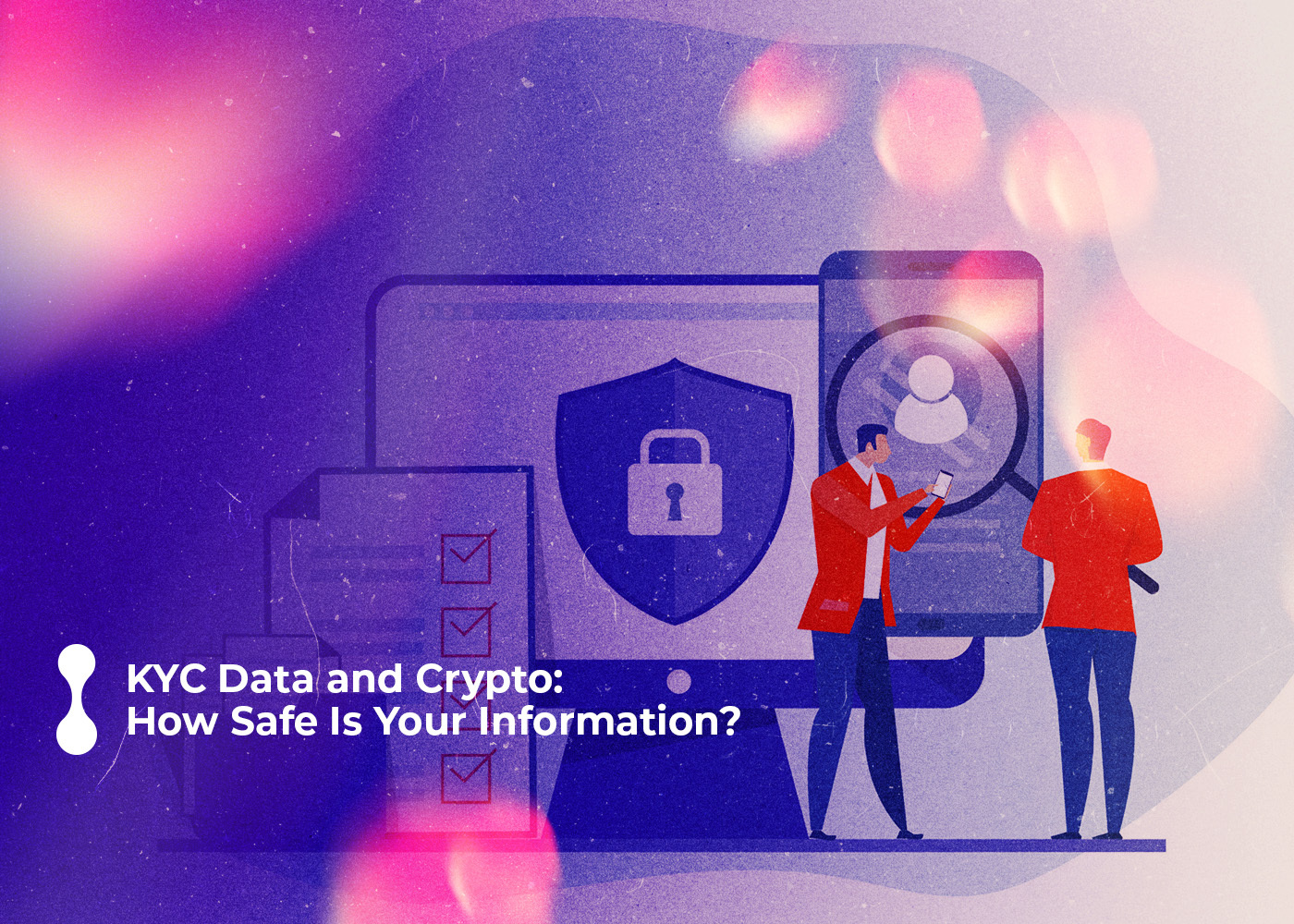As digital currency and blockchain become more integrated with daily life, there is an increasing need for a secure way to store valuable information. The process of KYC (Know Your Customer) data has become an integral part of cryptocurrency transactions to keep users safe with their finances and personal information. But is KYC safe? In this blog post, we’ll be looking at what KYC is, how it works, and its benefits and potentially problematic impacts when trading crypto assets. Let’s dive in!

How Does KYC Work in the Crypto Industry?
KYC, short for “Know Your Customer,” is a verification process used to authenticate the identity of customers. It helps to avoid fraudulent activities and to comply with regulations. KYC is gaining significant importance in the cryptocurrency industry as authorities worldwide closely monitor this field and its associated businesses.
To open an account with a crypto-related company, customers must undergo a KYC process which involves submitting identification documents like a passport or driver’s license along with additional details such as proof of address and a selfie. These requirements may differ based on the business and its location.
After the customer provides their information, the business will use tools such as government databases, background checks, and facial recognition technology to verify their identity. Once verified, the customer will have access to the business’s services. However, some businesses may require additional identity checks if the customer participates in high-value or high-risk transactions.
Is KYC Safe?
Businesses use the KYC (Know Your Customer) process to confirm their customers’ identities, prevent fraud, and comply with regulations. Although KYC can increase security in the crypto industry, there are still risks, such as data breaches, insider threats, and social engineering attacks. However, businesses conducting KYC have security measures in place – such as data encryption, two-factor authentication, secure storage, and regular audits – to safeguard KYC data.
Security Measures Taken during KYC:
KYC data is sensitive and therefore requires strong security measures to ensure its protection. Businesses that perform KYC typically have a variety of security measures in place, including:
- Data encryption: When KYC data is gathered and saved, it is usually made unreadable by encryption and can only be accessed with the correct decryption key.
- Two-factor authentication: Access to KYC data is limited to authorized personnel, and two-factor authentication is implemented to ensure that only authorized individuals can access it.
- Secure storage: We ensure the security of KYC data by storing it in secure physical and electronic locations and controlling access strictly.
- Regular audits: Regular audits are done on KYC processes and systems to ensure they comply with security standards and to find and fix any weaknesses.
Risks Associated with KYC Data:
Despite the security measures taken during KYC, there are still risks associated with KYC data. The most common risks include:
- Data breaches: Improperly securing KYC data can make it vulnerable to hacking and data breaches, which may expose sensitive data to cybercriminals.
- Insider threats: Insider threats are still possible even if the KYC data is securely stored and encrypted, as there is a risk of employees with data access using or stealing it for personal benefit.
- Social engineering attacks: Individuals should be aware that cybercriminals may use social engineering tactics to obtain their KYC data, which may result in identity theft or other forms of fraud.
Ways to Protect Your KYC Data:
To protect your KYC data, you should take the following steps:
- Choose a reputable business: Ensure you are sharing your KYC data only with a reliable business with a proven history of implementing security and following compliance guidelines.
- Use strong passwords: If you need to register for a business that needs KYC, make sure you choose a strong and distinctive password and turn on two-factor authentication if it’s available.
- Limit sharing of KYC data: Make sure to only provide your KYC data to reputable businesses with a genuine requirement for it and can be trusted.
- Monitor your accounts: It is important to regularly check your accounts for any unusual transactions or activity. If you notice any suspicious activity, report it to the relevant authorities immediately.
Final Words:
To sum up, cryptocurrency businesses must conduct the KYC process to verify customer identities, prevent fraudulent activity, and comply with regulations. Although sensitive KYC data collection and storage may pose risks, companies usually implement security measures like encryption, two-factor authentication, secure storage, and regular audits to safeguard the data. Although KYC data breaches can happen, individuals can safeguard their KYC data by selecting trustworthy businesses, creating strong passwords, minimizing the sharing of KYC data, and regularly monitoring their accounts. KYC can ultimately promote a more secure and regulatory-compliant crypto industry if robust security measures are implemented to protect sensitive information.
